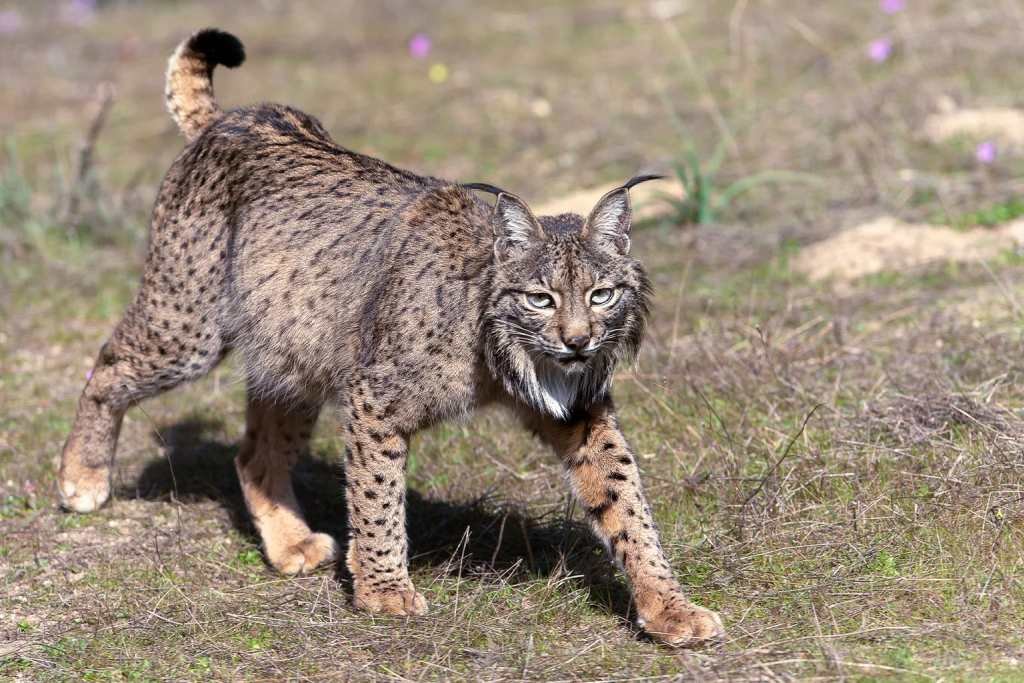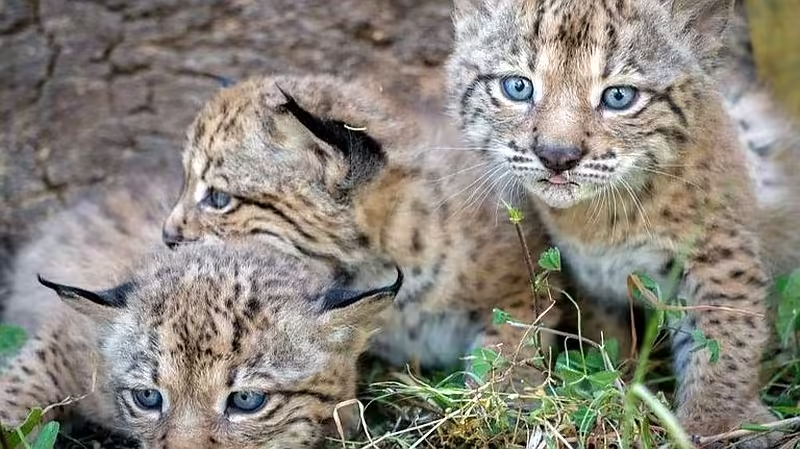Good news for Iberian lynx conservation efforts. A total of twelve Iberian lynx cubs born, have successfully been raised at the El Acebuche Breeding Centre in Doñana in 2024. This is a significant step in the ongoing efforts to recover the population of this endangered species.
According to the Autonomous Organisation of National Parks (OAPN), the cubs have passed through the critical post-birth phase. This typically lasts between two and four months. They are now preparing for their eventual release into their natural habitat.
Iberian Lynx: The World’s Most Endangered Feline
The Iberian lynx (Lynx pardinus), native to the Iberian Peninsula, is considered the most endangered wild cat species in the world. Once widespread across Spain and Portugal, habitat loss, prey scarcity (primarily rabbits), and poaching led to a dramatic decline in their numbers. In 2002, there were fewer than 100 individuals left in the wild, bringing the species to the brink of extinction.

Thanks to extensive breeding programmes and reintroduction efforts, the population has made a remarkable recovery, with over 2000 individuals now by recent population estimates. However, the species remains classified as “Endangered” on the IUCN Red List, and conservation work is ongoing.
Read all about the Iberian Lynx here including up to date studies and population status.
Successful Breeding in 2024
In total, 17 cubs were born in 2024 at centres managed by the OAPN, including 13 females and 4 males. Twelve of these cubs are currently housed at the El Acebuche Breeding Centre, while the remaining five are at the Zarza de Granadilla Centre in Cáceres.
The cubs have already begun their preparation for future release, which involves behavioural training to ensure they can hunt and survive in the wild. The Genetic and Demographic Aspects Advisory Group of the breeding programme will determine the most suitable locations for their release, taking into account factors such as habitat quality and genetic diversity.

A Bright Future for the Iberian Lynx?
While the survival of these cubs marks a positive step for the Iberian lynx, continued efforts are needed to ensure the species’ long-term recovery. Conservationists are focused on expanding suitable habitats, reintroducing rabbits (the lynx’s primary food source), and preventing further threats such as road accidents.
Read the original press release article at Huelva Hoy (In Spanish.)
Ronda Today
Everything you need to know before you visit Ronda “The city of dreams” in Andalucia. https://www.rondatoday.com/
Visit Cádiz
Planning on visiting Cádiz? Tourist information. Monuments. Hotels. Activities. City guides: https://visitingcadiz.com/
The Caminito del Rey
Find tickets for the Caminito del Rey: https://www.caminodelrey.es/
Wildside Holidays – Spain
Take a trip on the Wildside! Discover the wildlife and nature of Spain, its Natural and National Parks and find the top wildlife, activity and walking holiday companies.
Iberia Nature Forum
Struggling with identifying those bugs and beasties? Why not check out the Iberia nature Forum! https://iberianatureforum.com/
I’ve been living in this lovely area of Western Andalucia for the last 20 years or so and dedicate most of my time to the running of English language tourist information websites for the towns of Cádiz, Ronda, Grazalema, the famous or infamous Caminito del Rey, and also Wildside Holidays, which promotes sustainable and eco-friendly businesses running wildlife and walking holidays in Spain. My articles contain affiliate links that will help you reserve a hotel, bus, train or activity in the area. You don’t pay more, but by using them you do support this website. Thankyou!
